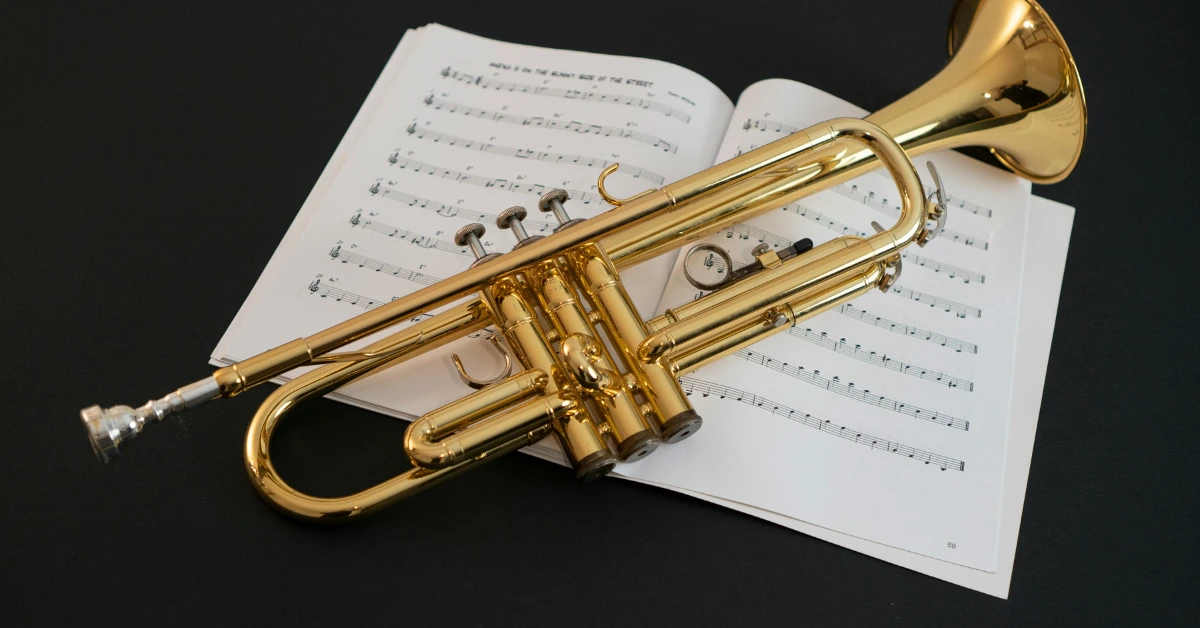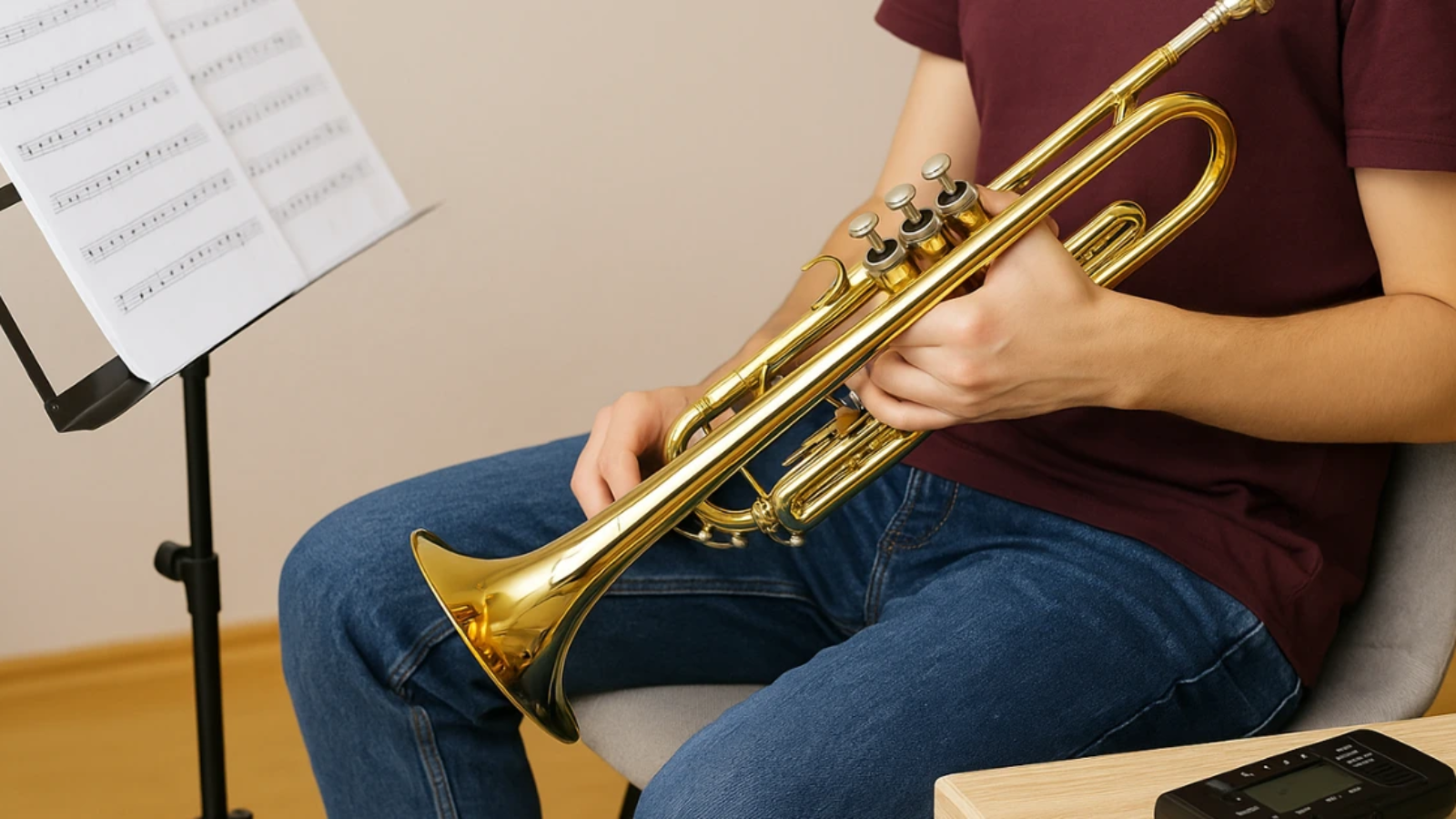How to Start Learning Trumpet for Indian and global music success.

The trumpet is one of the most vibrant and versatile wind instruments in the music world. Known for its bold, expressive tones and its rich history in both Western and Indian classical compositions, the trumpet offers a rewarding journey for beginners. Whether you’re a student, a music enthusiast, or a parent looking to introduce your child to music, learning the trumpet opens doors to various genres including Indian fusion, jazz, classical, and film music. This comprehensive guide will walk you through everything you need to know to get started with the trumpet in a structured, culturally rooted manner.
1. Understand the Basics of a Trumpet
Before diving into practice, it’s important to understand the instrument.
- The trumpet is a brass wind instrument.
- It produces sound when the player buzzes their lips into the mouthpiece.
- The instrument has three valves that alter the pitch.
- Indian fusion and modern orchestras often incorporate the trumpet.
A basic understanding of its parts and function will make learning easier and help you maintain the instrument better.
2. Selecting the Right Trumpet for Beginners
Choosing a quality beginner trumpet is key to early success.
- Go for student models that are lightweight and easy to handle.
- Consider brands like Yamaha, Jupiter, and Conn-Selmer.
- For Indian music, opt for trumpets that can handle long tones and flexible dynamics.
Always test a few in a music store or consult a music teacher before buying.
3. Learn Proper Posture and Hand Position
Correct body posture improves sound quality and stamina.
- Sit or stand upright with a relaxed but straight spine.
- Hold the trumpet at a 45-degree angle from your body.
- Left hand supports the trumpet; right hand operates the valves.
Proper grip helps avoid strain and increases control while playing long notes in Indian compositions.
4. Master the Art of Buzzing
Buzzing is the foundation of trumpet playing.
- Practice buzzing with just your lips, then with the mouthpiece.
- Focus on breath control and keeping a consistent tone.
- Start with 5–10 minutes of buzzing daily.
Buzzing is essential for tuning your ear, building stamina, and developing embouchure strength.
5. Basic Music Theory and Indian Swaras
A strong grasp of music theory is vital.
- Learn to read western staff notation.
- For Indian music, understand Sargam (Sa, Re, Ga, Ma, Pa, Dha, Ni, Sa).
- Practice scales and simple compositions in both forms.
This dual knowledge is especially helpful for fusion musicians and school band participants.
6. Practice Breathing Techniques
Controlled breathing is critical for trumpet players.
- Practice diaphragmatic breathing to improve lung control.
- Use breathing exercises like inhaling for 4 counts, holding for 4, exhaling for 4.
- Gradually increase your capacity to hold and control breath.
This is particularly useful for playing long Indian ragas or extended notes.
7. Start with Simple Exercises
Begin with easy exercises to get comfortable.
- Play long notes to improve tone.
- Move on to simple melodies and major scales.
- Slowly add fingering combinations with the three valves.
Choose exercises from beginner trumpet books or Indian compositions with simplified notation.
8. Use a Metronome and Tuner
Timing and pitch are essential skills.
- Use a metronome to maintain rhythm.
- A tuner helps with pitch accuracy.
- Begin with slow tempos and gradually increase.
Indian classical pieces often rely on precise rhythm (Tala) and pitch, so this practice is invaluable.
9. Consistency Is Key
Consistent practice brings results.
- Start with 15–20 minutes daily, then increase over time.
- Focus on technique, breath, and intonation.
- Break your practice into warm-up, exercises, and melodies.
Create a schedule that includes Indian compositions and Western pieces for variety.
10. Play Along with Indian Music Tracks
To get familiar with Indian sounds:
- Play along with Indian instrumental or vocal music.
- Try matching the swaras and rhythm.
- Explore Raagas that use slow, sustained notes.
This will enhance your ear training and adaptability.
11. Record and Review Your Playing
Self-review is a powerful learning tool.
- Use a smartphone or simple recorder.
- Listen back to identify flaws in tone, timing, or tuning.
- Make notes and aim for improvement daily.
It builds self-awareness, especially when preparing for performances or exams.
12. Join a Music School or Take Online Lessons
Formal instruction can accelerate progress.
- Look for local teachers who specialize in wind instruments.
- Choose a school that supports Indian classical and Western music.
- Online platforms like YouTube or paid courses are also great options.
Make sure the teacher understands your goals—be it Indian music, orchestral playing, or fusion.
13. Take Care of Your Instrument
Maintaining your trumpet is essential.
- Clean the mouthpiece weekly.
- Oil the valves regularly to avoid sticking.
- Store the trumpet in a dust-free case.
India’s weather conditions can affect brass instruments, so regular maintenance is critical.
14. Participate in Recitals and Jams
Performing builds confidence and skill.
- Join school or community music groups.
- Take part in recitals or competitions.
- Collaborate with other Indian instrumentalists.
The trumpet blends well with tabla, keyboard, and Indian percussion for a unique sound.
15. Be Patient and Stay Inspired
Learning the trumpet is a journey.
- You won’t master it overnight.
- Celebrate small wins like learning a new scale or melody.
- Listen to great trumpet players like Miles Davis or Indian fusion artists.
Staying inspired will keep your passion alive, even on tough practice days.
CONCLUSION
How to Start Learning the Trumpet isn’t just about blowing into a brass tube—it’s about developing discipline, passion, and musical identity. For Indian music lovers, it offers a unique way to explore ragas and rhythms with bold expression. Whether you’re 10 or 60, it’s never too late to begin your journey with the trumpet. With the right guidance, consistent practice, and a little patience, you’ll soon find yourself not just playing notes, but telling stories through music. Let your trumpet be your voice—and make every note count.
At NMS Musicals, we offer a comprehensive range of musical instruments, including percussion, string, wind, and keyboard instruments. Our services encompass sales, expert servicing, and the manufacture of leather instruments. Explore our diverse collection and find the perfect instrument to suit your musical needs.
Visit our website to browse our offerings: nmsmusicals.in
For a closer look at our products, check out our shop page: nmsmusicals.in/shop
Stay connected with us through our social media channels:
- Facebook: https://www.facebook.com/nmsmusicalinstruments/
- Instagram: https://www.instagram.com/nmsmusicals/?hl=en
- YouTube: youtube.com/@nmsmusicals
Our shop locations are:
- Puducherry: 149, Perumal Koil Street, Heritage Town, Puducherry, 605001.
Map Link: https://maps.app.goo.gl/ejDwBBFEJmd3szxk7 - Chennai: No: 1, 1st Floor, Kandigai Street, TVS Nagar, Korattur, Chennai – 600076.
Map Link: https://maps.app.goo.gl/7oXmB6X7KQsqeuuw9
For inquiries, contact/Whatsapp us at 9500663895 or email us at laxman.m89@gmail.com.
Discover the world of musical instruments with NMS Musicals today!
For a visual overview of our percussion instruments, watch the following video:


 Cart is empty
Cart is empty 
Leave A Comment
You must be logged in to post a comment